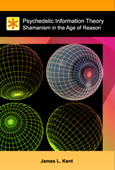
References
Pahnke's 'Good Friday Experiment' A Long-Term Follow-Up And Methodological Critique
Doblin, R; The Journal of Transpersonal Psychology, 1991, Vol. 23, No. 1.
On Good Friday, 1962, before services commenced in Boston University's Marsh Chapel, Walter Pahnke administered small capsules to twenty Protestant divinity students. Thus began the most scientific experiment in the literature designed to investigate the potential of psychedelic drugs to facilitate mystical experience (Pahnke, 1963, 1966, 1967, 1970; Pahnke & Richards, 1969a, 1969b, 1969c). Half the capsules contained psilocybin (30mg), an extract of psychoactive mushrooms, and the other half contained a placebo. According to Pahnke, the experiment determined that "the persons who received psilocybin experienced to a greater extent than did the controls the phenomena described by our typology of mysticism" (Pahnke, 1963, p. 220).
This paper is a brief methodological critique and long-term follow- up study to the "Good Friday Experiment." Pahnke, who was both a physician and a minister, conducted the experiment in 1962 for his Ph.D. in Religion and Society at Harvard University, with Timothy Leary as his principal academic advisor (Leary, 1962, 1967, 1968). Describing the experiment, Walter Houston Clark, 1961 recipient of the American Psychological Association's William James Memorial Award for contributions to the psychology of religion, writes, "There are no experiments known to me in the history of the scientific study of religion better designed or clearer in their conclusions than this one" (Clark, 1969, p. 77).
Web Resource: www.streetdata.net
Keywords: psychedelics, entheogens, spirituality, mysticism
|
This reference is included in the following Listings: |
